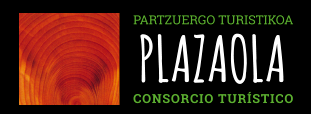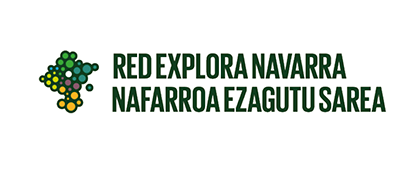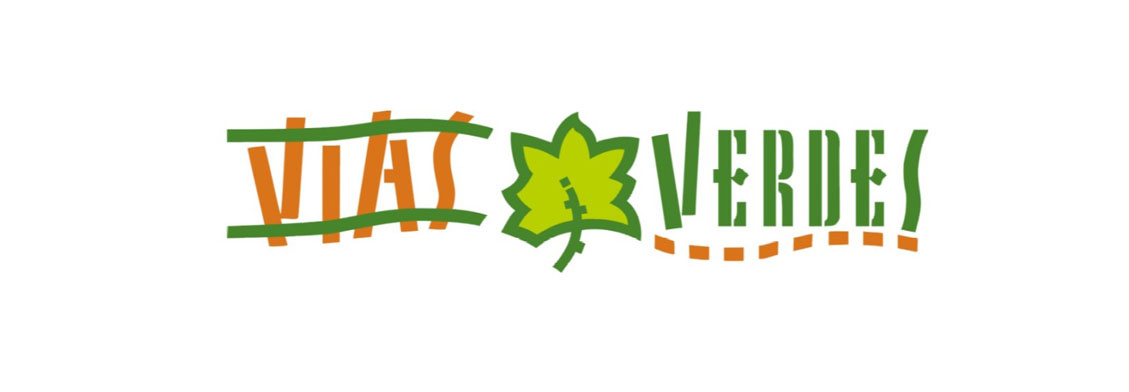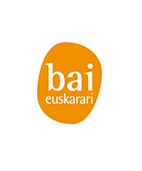Organisation
ORGANISATION
The Consortium was formed in 1994 with the main objective of developing sustainable rural tourism in the area.
The first priority was to set up a structure in which the majority of local sectors could be represented. The Consortium’s legal status complies with the content of the Statutes which is applicable to local corporations or Consortiums.![]()
![]() Estatutos del Consorcio Turístico del Plazaola.
Estatutos del Consorcio Turístico del Plazaola.
Currently there are six Consortiums of this kind in Navarre, all of which depend on backing from the Government of Navarre as the main source of finance as well as the quotas paid by their members.
The Consortium’s main collaborators are various departments of the Government of Navarre, the Department of Tourism, the General Tourism Secretariat, the Ministry for the Environment and other Consortiums and associations.
From this collaboration and experience comes the belief that the development of tourism should be based on projects which improve on the existing tourism products. In order to carry out these projects it is vital to know the opinion of the local people through the business associations and local councils that take an active role in the development project that we feel appropriate for the area.
Who we are
The Consortium is a non-profitmaking association set up to develop tourism in certain areas.
The Consortium is made up of 34 local town and village councils and more than 100 private enterprises which are members of various associations: hotel and catering; Aralar/Urbasa Country Houses; arts and crafts; and associations comprising members who carry out other diverse activities.
We are based in the old Plazaola Station in Lekunberri which was renovated in 1998 to house the Tourist Office and Visitors Centre. The office is run by two people, the manager and a secretary. The staff of the Tourist Office also forms part of the Consortium.
The decision-makers:
- Members Meeting; all the members from both public and private sectors attend. The management of the consortium is approved during the annual general meeting.
- The Board of Directors; the local organisations and associations each have a representative on the board.
- The Chairperson; a representative of a local organisation elected every four years at the annual general meeting. The chairman is currently José Mª Aierdi, mayor of Lekunberri.
- The Management; the current manager is Maitena Ezkutari, qualified in Business and Tourism Studies.
![]()
![]() Resumen de Actuaciones del Consorcio Turístico del Plazaola. 1994-2002.
Resumen de Actuaciones del Consorcio Turístico del Plazaola. 1994-2002.
The objectives of the Consortium:
- Plan, carry out and promote the development of tourism in the area based on the creation of the Plazaola Green Route, which is the backbone of tourism in the area and within the Consortium’s area of responsibility.
- Manage the tourism resources in the area.
- Ensure the optimum development of the restoration works and maintenance necessary for the creation of tourism services and infrastructures.
- Coordinate proposals put forward by both the public and private sectors.
- Carry out the necessary research to develop tourism in a way that respects the cultural and natural environment of the valleys and villages by proposing the appropriate norms for use and management methods.
- Collaborate with initiatives drawn up by both the public and private sectors to obtain the resources to finance the activities or investments proposed in the tourism sector.
Activities carried out by the Consortium
- Foment the creation and maintenance of places of interest in order to conserve and recondition them, such as: the Betelu forge, the Iribas spring, the Albiasu viewpoint, the Orgi oak grove, the Plazaola Green Route, the station at Lekunberri and the Mentrokillo caves.
- Create and maintain footpaths as a tourism and cultural resource. For example, the Short Trails which were signposted a few years ago, and the recovery of the old route of the Plazaola railway as a Long Trail.
- Promote the Plazaola Tourism Consortium as a tourist destination by attending trade fairs, providing training for the members, organising cultural activities such as themed exhibitions, etc.
- Produce publications that explain and promote the culture, natural environment and history of the area.
- Carry out studies to establish and improve the quality of resources and services.
CODE OF CONDUCT
Code of conduct for visitors to country areas![]() Keep the countryside clean.
Keep the countryside clean.![]() Only make fires in the designated areas.
Only make fires in the designated areas.![]() Respect the natural and cultural environment.
Respect the natural and cultural environment.![]() If you pick the plant life, do so in moderation.
If you pick the plant life, do so in moderation.![]() Keep the water clean.
Keep the water clean.![]() Respect the country life and the work of the people who live here.
Respect the country life and the work of the people who live here.![]() Use the public thoroughfares.
Use the public thoroughfares.![]() Keep dogs under control.
Keep dogs under control.![]() Close the gates.
Close the gates.![]() Drive carefully.
Drive carefully.
Bones pràctiques de l’habitant del medi rural![]() Respect the public thoroughfares.
Respect the public thoroughfares.![]() Keep the countryside clean.
Keep the countryside clean.![]() Use water sparingly.
Use water sparingly.![]() Take part in public decisions.
Take part in public decisions.![]() We are all necessary.
We are all necessary.![]() Promote quality agriculture and livestock husbandry.
Promote quality agriculture and livestock husbandry.![]() Preserve the natural and cultural environment.
Preserve the natural and cultural environment.![]() Use natural resources with consideration for others.
Use natural resources with consideration for others.![]() The mountain region has a future.
The mountain region has a future.![]() The countryside and the city need each other.
The countryside and the city need each other.






